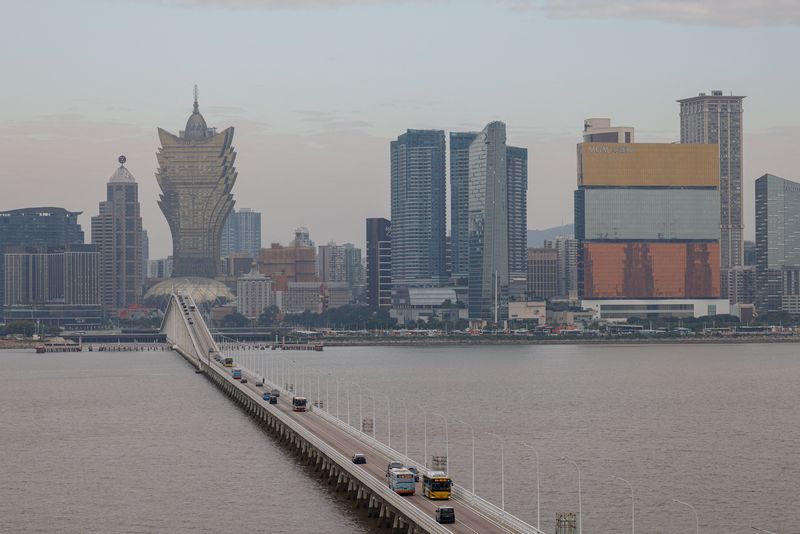BEIJING (Reuters) - Casino (EPA:CASP) revenues in Macau, the world's biggest gambling hub, soared by nearly a quarter in 2024 but still came in short of pre-pandemic levels, underlining the need for the former Portuguese colony to diversify its economy.
Gaming revenue last year reached 226.8 billion patacas ($28.35 billion), up 23.9% from 2023, according to data published by the Gaming Inspection and Coordination Bureau on Wednesday.
That topped the government's estimate of 216 billion patacas, but trailed the 292.5 billion patacas logged in 2019.
Notably, revenue fell 2.0% in December, the only month registering a year-on-year decline in 2024.
The drop coincided with tighter security surrounding a three-day visit by Chinese President Xi Jinping to mark a quarter century of Beijing's rule.
Macau returned to Chinese rule on Dec. 20, 1999, governed under the same "one country, two systems" system as nearby Hong Kong.
During his trip, Xi urged Macau to have the "courage" to diversify its economy by establishing new industries and better connecting with the mainland's national developing strategies.
That includes increased economic integration with the Greater Bay Area, a region in the Pearl River delta linking cities such as Hong Kong and Guangzhou.
To boost its global competitiveness, Xi said Macau should further promote cooperation with Portuguese-speaking countries and actively participate in Beijing's Belt and Road Initiative, an ambitious infrastructure plan aimed at boosting trade between China and the rest of the world.
Macau, a special administrative region of China, is the only place in the country where gambling is legal. Its economy is heavily reliant on casinos, which contributes about 80% of tax revenues.

But China's long-term anti-corruption drive has reined in gambling revenues from the high-roller VIP sector, which were further depressed during the pandemic years when strict travel restrictions sharply curtailed visits from mainland tourists.
($1 = 7.9990 patacas)